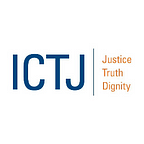Jeju 4:3 A Dark Chapter in Korean History Revealed at UN
June 20, 2019 — In a tightly packed room at the United Nations, human rights experts gathered for a historic symposium to commemorate a dark chapter of South Korea’s past, the Jeju Uprising and Massacre that began on April 3, 1948, and continued until 1951, which Koreans now refer to as “the 4.3 Jeju” events. Over 100 persons, including notable academic panelists, human rights experts, journalists, diplomats, religious leaders, and peace activists attended the symposium.
In a powerful moment that brought many in the room to tears, Ko Wan-soon, a now 80-year-old Jeju woman who witnessed the massacre when she was 8 years old recounted her painful memories. “Discovered by the soldiers, I was dragged out into the street, and the sky was filled with smoke as the village burned,” she said. “Bang, bang, bang, I heard gunshots, and the heads I saw were gone.”
“I wish I could forget the sin,” she continued, “but I remember when I close my eyes as if it was yesterday. An 8-year-old girl has become an 80-year-old woman, who still has not achieved her dream: that the U.S. government join us and help us discover the truth.”
The larger context to the 4.3 Jeju events was the end of World War II, which also meant the end of the Japanese occupation of the Korean peninsula and the beginning of American military control over the South. Jeju Island off the southern coast, which today has become more famous as a tourist destination, had one of the most active, organized and progressive movements for an independent Korean nation. On April 3, 1948, both those who were active in that movement and ordinary people from Jeju, including children, were targeted for killings, detention, and torture by right-wing Korean police and paramilitary forces, who were under the control of U.S. military forces occupying the South, including Jeju.
Protesters calling for unification of the Korean peninsula and the removal of U.S. troops occupying the country gathered at Buk Elementary School. The protest had been organized to commemorate the 38th anniversary of the Independence Day Movement that resisted historic Japanese colonization on the island. On April 3, in response to increasing suppression by the U.S. military government and the detention of hundreds of civilians, the uprising escalated. The violent military response to resistance was devastating. It claimed nearly 30,000 civilian lives, while many others were detained, tortured, or disappeared.
For almost half a century, these incidents were shrouded in silence. Victims of the human rights atrocities were unable to pursue justice in fear that it would have ramifications for their families. But in the 1990’s, a wave of anti-dictatorship protests and a sustained democratization movement led to a transition and key transitional justice processes — a series of truth commissions, reparations for victims of different periods of repression, and the prosecution of former military dictators for corruption. This transition also allowed 4.3 Jeju to be acknowledged. In 1999, the National Assembly passed a transitional justice law. This in turn led to the first formal apology to the people of Jeju in 2003, given in parliament by then president Roh Moo-hyun.
The movement for transitional justice has continued to expand. In 2018, Roh’s former aide and a human rights lawyer, Moon Jae-in, delivered a similar apology on Jeju Island and promised to undertake a search for the remains of those still missing, and additional compensation for the families of victims. Police officials apologized in 2019.
At the UN symposium, Jeju 4.3 survivors and the families of victims as along with church leaders, local government officials, and Jeju human rights groups, including the Jeju Peace Foundation and Dark Tours Jeju, assembled to hear Korean and American historians, a former U.S. State Department official, and Charles Hanley, a Pulitzer Prize winning journalist, share their views on who should be held responsible 70 years later.
In his own remarks, Professor Tae Ung-baik, the vice-chairman of the UN Working Group on Enforced Disappearances, called for an amendment to South Korea’s transitional justice law, to not only pursue the truth around Jeju but to provide more forms of reparation to survivors and their families. Doing so, he said, will help in domestic and international efforts to open U.S. archives, find bodies of the disappeared, and recognize many other victims.
For its part, the ICTJ pointed out that South Korea’s truth commissions have so far only involved Korean nationals. Pointing out examples from Timor-Leste and Indonesia, as well as Kenya and the Solomon Islands, ICTJ’s Ruben Carranza recommended a joint U.S. and South Korea truth commission, which might also include a role for the UN.
